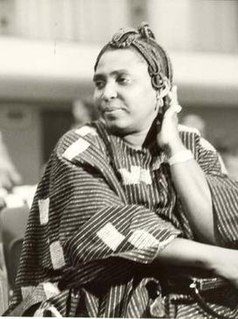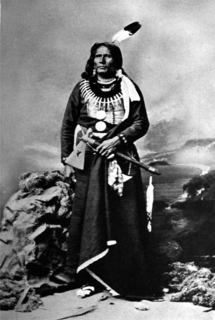A Quote by Anne-Robert-Jacques Turgot, Baron de Laune
If the land was divided among all the inhabitants of a country, so that each of them possessed precisely the quantity necessary for his support, and nothing more; it is evident that all of them being equal, no one would work for another. Neither would any of them possess wherewith to pay another for his labour, for each person having only such a quantity of land as was necessary to produce a subsistence, would consume all he should gather, and would not have any thing to give in exchange for the labour of others.
Related Quotes
It is evident that the right of acquiring and possessing property, and having it protected, is one of the natural, inherent, and unalienable rights of man. Men have a sense of property: Property is necessary to their subsistence, and correspondent to their natural wants and desires; its security was one of the objects, that induced them to unite in society. No man would become a member of a community, in which he could not enjoy the fruits of his honest labour and industry.
If there existed only one man or woman who did not love the Saviour, and if that person lived among the wilds of Siberia, and if it were necessary that all the millions of believers on the face of the earth should journey there, and every one of them plead with him to come to Jesus before he could be converted, it would be well worth all the zeal, labour, and expense. If we had to preach to thousands year after year, and never rescued but one soul, that one soul would be full reward for all our labour, for a soul is of countless price.
The value of any commodity, therefore, to the person who possesses it, and who means not to use or consume it himself, but to exchange it for other commodities, is equal to the quantity of labour which it enables him to purchase or command. Labour, therefore, is the real measure of the exchangeable value of all commodities. The real price of everything, what everything really costs to the man who wants to acquire it, is the toil and trouble of acquiring it.
To discover the rules of society that are best suited to nations, there would need to exist a superior intelligence, who could understand the passions of men without feeling any of them, who had no affinity with our nature but knew it to the full, whose happiness was independent of ours, but who would nevertheless make our happiness his concern, who would be content to wait in the fullness of time for a distant glory, and to labour in one age to enjoy the fruits in another. Gods would be needed to give men laws.
And, inasmuch [as] most good things are produced by labour, it follows that all such things of right belong to those whose labour has produced them. But it has so happened in all ages of the world, that some have laboured, and others have, without labour, enjoyed a large proportion of the fruits. This is wrong, and should not continue. To [secure] to each labourer the whole product of his labour, or as nearly as possible, is a most worthy object of any good government.
As natural selection acts by competition, it adapts the inhabitants of each country only in relation to the degree of perfection of their associates; so that we need feel no surprise at the inhabitants of any one country, although on the ordinary view supposed to have been specially created and adapted for that country, being beaten and supplanted by the naturalised productions from another land.
Scilurus on his death-bed, being about to leave four-score sons surviving, offered a bundle of darts to each of them, and bade them break them. When all refused, drawing out one by one, he easily broke them, thus teaching them that if they held together, they would continue strong; but if they fell out and were divided, they would become weak.
I remain persuaded of the inevitable and necessary complementarity of man and woman. Love, imperfect as it may be in its content and expression, remains the natural link between these two beings. To love one another! If only each partner could move sincerely towards the other! If each could only melt into the other! If each would only accept the other's qualities instead of listing his faults! If each could only correct bad habits without harping on about them!
You have driven me from the East to this place, and I have been here two thousand years or more....My friends, if you took me away from this land it would be very hard for me. I wish to die in this land. I wish to be an old man here....I have not wished to give even a part of it to the Great Father. Though he would give me a million dollars or more I would not give to him this land....When people want to slaughter cattle they drive them along until they get them to a corral, and then they slaughter them. So it was with us....My children have been exterminated; my brother has been killed.
Adam Smith is an egalitarian, he believed in equality of outcome, not opportunity. He is an enlightenment figure, pre-capitalist. He says, suppose in England, one landowner got most of the land and other people would have nothing to live on. He says it wouldn't matter much, because the rich land owner, by virtue of his sympathy for other people would distribute resources among them, so that by an invisible hand, we would end up with a pretty egalitarian society. That is his conception of human nature.
The produce of the earth - all that is derived from its surface by the united application of labour, machinery, and capital, is divided among three classes of the community, namely, the proprietor of the land, the owner of the stock or capital necessary for its cultivation, and the labourers by whose industry it is cultivated.
In my opinion, if 100% of the people were farming it would be ideal. If each person were given one quarter-acre, that is 1 1/4 acres to a family of five, that would be more than enough land to support the family for the whole year. If natural farming were practiced, a farmer would also have plenty of time for leisure and social activities within the village community. I think this is the most direct path toward making this country a happy, pleasant land.
Maybe they would look at each other and feel some odd yearning, but neither of them would know why. They would want to stop, but they would be embarrassed, and neither would know what to say. They would go their separate ways. Who knew? Maybe that happened every day to people who'd once loved each other.










































